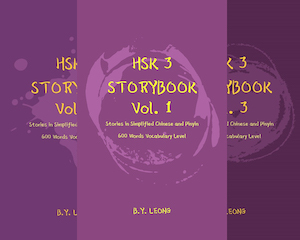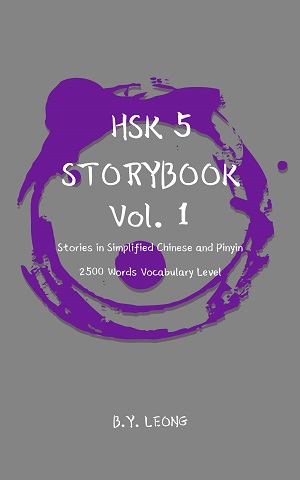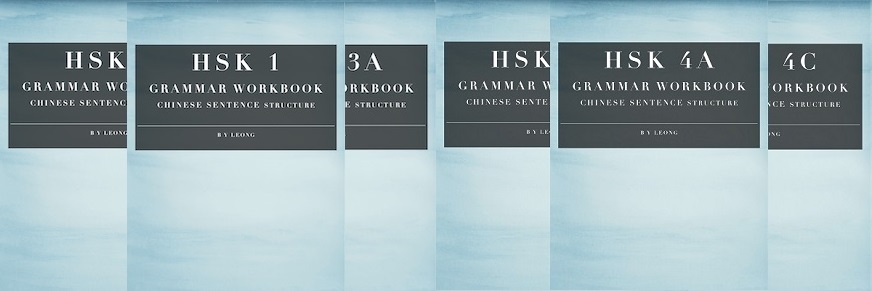|
吧
|
ba
|
used at the end of a sentence to indicate
consultation, suggestion, request or command
|
|
白
|
bái
|
white
|
|
百
|
bǎi
|
hundred
|
|
帮助
|
bāngzhù
|
to
help, to assist, to aid
|
|
报纸
|
bàozhǐ
|
newspaper
|
|
比
|
bǐ
|
than,
(superior or inferior) to
|
|
别
|
bié
|
don’t
|
|
宾馆
|
bīnguǎn
|
hotel
|
|
长
|
cháng
|
long
|
|
唱歌
|
chànggē
|
to
sign
|
|
出
|
chū
|
to come/to go out
|
|
穿
|
chuān
|
to
wear, to put on
|
|
次
|
cì
|
(number of) times
|
|
从
|
cóng
|
from
|
|
错
|
cuò
|
wrong, incorrect
|
|
打篮球
|
dǎ
lánqiú
|
to
play basketball
|
|
大家
|
dà jiā
|
all, everybody
|
|
但是
|
dàn
shì
|
but,
still, yet
|
|
到
|
dào
|
to arrive, to reach
|
|
得
|
dé
|
used
after a verb or an adjective to introduce a complement of result or degree
|
|
等
|
děng
|
to wait, to await
|
|
弟弟
|
dìdì
|
young
brother
|
|
第一
|
dì yī
|
first
|
|
懂
|
dǒng
|
to
understand, to know
|
|
对
|
duì
|
(used before a noun or pronoun) to, for
|
|
房间
|
fángjiān
|
room
|
|
非常
|
fēicháng
|
very, extremely
|
|
服务员
|
fúwùyuán
|
attendant,
waiter/waitress
|
|
高
|
gāo
|
tall, high
|
|
告诉
|
gàosù
|
to
tell
|
|
哥哥
|
gēgē
|
elder brother
|
|
给
|
gěi
|
(used
after a verb) to, for
|
|
公共汽车
|
gōnggòng qìchē
|
bus
|
|
公司
|
gōngsī
|
company,
firm
|
|
贵
|
guì
|
expensive
|
|
还
|
hái
|
also,
still, yet
|
|
孩子
|
háizi
|
child, kid
|
|
好吃
|
hào
chī
|
delicious,
tasty
|
|
黑
|
hēi
|
black
|
|
红
|
hóng
|
red
|
|
火车站
|
huǒchē zhàn
|
train station
|
|
机场
|
jīchǎng
|
airport
|
|
鸡蛋
|
jīdàn
|
(hen’s) egg
|
|
件
|
jiàn
|
(used
for clothes) piece
|
|
觉得
|
juédé
|
to think, to feel
|
|
教室
|
jiàoshì
|
classroom
|
|
姐姐
|
jiějiě
|
elder sister
|
|
介绍
|
jièshào
|
to
introduce, to recommend
|
|
进
|
jìn
|
to enter, to come/go in
|
|
近
|
jìn
|
near,
close
|
|
就
|
jiù
|
emphasize the time is short or early
|
|
咖啡
|
kāfēi
|
coffee
|
|
开始
|
kāishǐ
|
to begin, to start
|
|
考试
|
kǎoshì
|
test,
exam
|
|
可能
|
kěnéng
|
maybe, perhaps, probably
|
|
可以
|
kěyǐ
|
can,
may, possible
|
|
课
|
kè
|
class, lesson
|
|
快
|
kuài
|
quick,
fast
|
|
快乐
|
kuàilè
|
happy, glad
|
|
累
|
lèi
|
tired
|
|
离
|
lí
|
to be away from
|
|
两
|
liǎng
|
two
|
|
零
|
líng
|
zero
|
|
路
|
lù
|
road,
path, way
|
|
旅游
|
lǚyóu
|
to travel, to take a trip
|
|
卖
|
mài
|
to
sell
|
|
慢
|
màn
|
slow
|
|
忙
|
máng
|
busy
|
|
每
|
měi
|
every, each
|
|
妹妹
|
mèimei
|
younger
sister
|
|
门
|
mén
|
door, gate
|
|
面条
|
miàntiáo
|
noodles
|
|
男
|
nán
|
man, male
|
|
您
|
nín
|
(polite)
you
|
|
牛奶
|
niúnǎi
|
milk
|
|
女
|
nǚ
|
woman,
female
|
|
旁边
|
pángbiān
|
beside
|
|
跑步
|
pǎobù
|
to
run, to jog
|
|
便宜
|
piányí
|
cheap, inexpensive
|
|
票
|
piào
|
ticket
|
|
妻子
|
qīzi
|
wife
|
|
起床
|
qǐchuáng
|
to
get up, to get out of bed
|
|
千
|
qiān
|
thousand
|
|
铅笔
|
qiānbǐ
|
pencil
|
|
晴
|
qíng
|
sunny, clear
|
|
去年
|
qùnián
|
last
year
|
|
让
|
ràng
|
to let, to allow
|
|
日
|
rì
|
day,
date
|
|
上班
|
shàngbān
|
to work
|
|
身体
|
shēntǐ
|
body
|
|
生病
|
shēngbìng
|
to fall ill, to be sick
|
|
生日
|
shēngrì
|
birthday
|
|
时间
|
shíjiān
|
time
|
|
事情
|
shìqíng
|
thing,
matter, affair
|
|
手表
|
shǒubiǎo
|
watch
|
|
手机
|
shǒujī
|
mobile
phone
|
|
说话
|
shuōhuà
|
to speak, to say, to talk
|
|
送
|
sòng
|
to
send, to deliver
|
|
虽然
|
suīrán
|
although, though
|
|
所以
|
suǒyǐ
|
so,
therefore
|
|
它
|
tā
|
it
|
|
踢足球
|
tī
zúqiú
|
to
play football
|
|
题
|
tí
|
question, problem
|
|
跳舞
|
tiàowǔ
|
to
dance
|
|
外
|
wài
|
outer, inside
|
|
完
|
wán
|
to
finish, to end
|
|
玩儿
|
wán er
|
to play, to have fun
|
|
晚上
|
wǎnshàng
|
evening,
night
|
|
往
|
wǎng
|
to towards
|
|
为什么
|
wèi
shéme
|
why
|
|
问
|
wèn
|
to ask
|
|
问题
|
wèntí
|
question,
problem
|
|
西瓜
|
xīguā
|
watermelon
|
|
希望
|
xīwàng
|
to
hope, to wish
|
|
洗
|
xǐ
|
to wash, to bathe
|
|
小时
|
xiǎoshí
|
hour
|
|
笑
|
xiào
|
to smile to, to laugh
|
|
新
|
xīn
|
new
|
|
姓
|
xìng
|
family name, surname
|
|
休息
|
xiūxí
|
to
have or take a rest
|
|
雪
|
xuě
|
snow
|
|
颜色
|
yánsè
|
colour
|
|
眼睛
|
yǎnjīng
|
eye
|
|
羊肉
|
yángròu
|
mutton
|
|
药
|
yào
|
medicine, drug
|
|
要
|
yào
|
to
want to, would like to
|
|
也
|
yě
|
also, too
|
|
一下
|
yīxià
|
used
after a verb, indicating an act or an attempt
|
|
已经
|
yǐjīng
|
already
|
|
一起
|
yīqǐ
|
together
|
|
意思
|
yìsi
|
meaning
|
|
因为
|
yīnwèi
|
because,
since
|
|
阴
|
yīn
|
overcast, cloudy
|
|
游泳
|
yóuyǒng
|
to
swim
|
|
右边
|
yòubiān
|
right, right side
|
|
鱼
|
yú
|
fish
|
|
远
|
yuǎn
|
far, distant
|
|
运动
|
yùndòng
|
sports,
to do physical exercise, to work out
|
|
再
|
zài
|
again, once more
|
|
早上
|
zǎoshang
|
morning
|
|
丈夫
|
zhàngfū
|
husband
|
|
找
|
zhǎo
|
to
look for
|
|
着
|
zhe
|
used to indicate a state
|
|
真
|
zhēn
|
really,
indeed
|
|
正在
|
zhèngzài
|
in the process of
|
|
知道
|
zhīdào
|
to
know
|
|
准备
|
zhǔnbèi
|
to plan
|
|
走
|
zǒu
|
to
walk
|
|
最
|
zuì
|
most, to the greatest extent
|
|
左边
|
zuǒbiān
|
left
side
|












